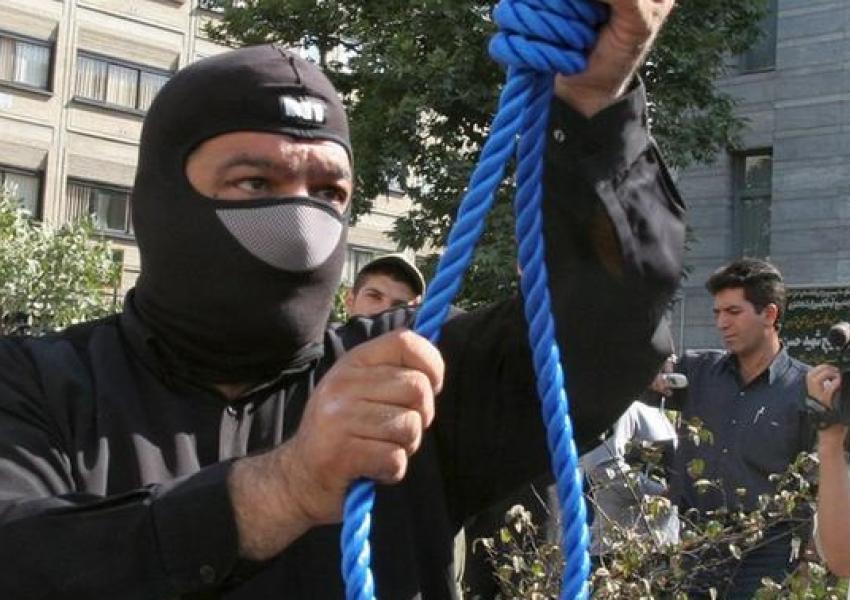
‘Waiting In the Corridor of Death’ - Anti-Capital Punishment Groups Indict Iran
A day ahead of the World Day Against the Death Penalty on Saturday, October 10, two human rights organizations have called for an end to capital punishment in Iran, which executes more people than any country except China.
Reporters Without Borders joined the Defenders of Human Rights Center (DHRC) in a statement adding to international and domestic public pressure in recent weeks on the government of the Islamic Republic.
Shirin Ebadi, the Nobel Peace Prize Laureate who lives in exile and is a founding member of DHRC, welcomed the “struggle of Iranians” and asked the international community to “assist in this campaign without delay.” She said there were “30 individuals in Iranian prisons who have been sentenced to death and are waiting in the corridor of death for this inhuman punishment.”
Christophe Deloire, Secretary General of Paris-based Reporters Without Borders, emphasized both legal irregularities in sentencing and the use of capital punishment against prisoners of conscience, including journalists. He referred to “thousands of men and women and more than 20 journalists” executed since the 1979 Iranian revolution after sentences passed “by unfair courts.”
The two rights organizations claim that in the past 20 years “dozens of journalists, bloggers and citizen-journalists” had received the death penalty, and that over 41 years the Islamic Republic has sentenced more journalists to death than any other country. Deloire said that “executing prisoners of conscience, which includes journalists, is the most radical form of suppressing freedom of speech.”
The two organizations have asked social-media users to circulate their views under the hashtag ‘No to Execution’ on Saturday, for World Day Against the Death Penalty to help save the lives of jailed prisoners of conscience, including journalists.
Iran’s execution of Navid Afkari, a 27-year-old wrestling champion, on September 12 sparked a Twitter storm, with millions of posts, against the government as thousands demanded an end to the death penalty. Reporters Without Borders and DHRC are continuing the campaign.
Their joint statement criticized the interpretation and application of Islamic Sharia in Iran, saying the law prescribes the death penalty for crimes including those related purely to speech. The statement cited the case of Rouhollah Zam, an exiled Iranian journalist lured to Iraq by Iranian intelligence before being abducted, repatriated and given multiple death sentences.
A new report released by the International Federation for Human Rights (FIDH) on Thursday stated that the death penalty in Iran violates fundamental human rights and is inconsistent with international standards. “The unchecked use of the death penalty in Iran is an indelible stain on the country’s human rights record,” said FIDH Secretary-General Adilur Rahman Khan. “The government can make concrete progress towards the abolition of this outdated and brutal practice by simply respecting international treaties to which Iran is bound.”
The FIDH report said that at least 251 people were executed in 2019 and more than 190 people in the first nine months of 2020. Iran has the highest number of executions in the world after China and is one of a handful of countries that execute juveniles. Tehran has always opposed more stringent international treaties banning capital punishment.
An opinion survey in Iran published October 8 found that 70 percent of Iranian oppose the death penalty. Over 85 percent oppose the execution of those under 18.








